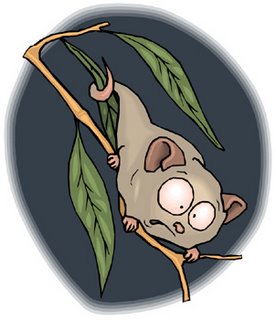"I will bring them to their feet." Luciano Pavarotti
CAN YOU hear the silence? Luciano Pavarottihas been forced to cancel his performances for rest of this year because of the removal of a malignant pancreatic mass.
He has impressed his doctors with his physical and emotional resilience, and plans to resume in 2007. At the age of 70, he has been singing for us for over 40 years.
==="I CAN TELL YOU WHAT ARIA THE AUDIENCE LIKE. NESSUN DORMA, FROM TURANDOT." ===
Pavarotti, Nessun Dorma at Torino in 2006. Listen closely and you'll hear the audience singing along.
Warning: This one will bring you to your knees.
The silence of the media has also been deafening. The news has been spread mostly by word-of-mouth. Club Vivo Per Lei members email me daily – “I have just learned the news.”
Like the blogger who wrote, “He has been the soundtrack for much of my life,” Pavarotti is so much a part of my life, I knew almost nothing about him. He rarely grants interviews. Ah well, if one can sing, why talk?
By all reports, he isn’t a complicated man. Italian to the core, he appreciates food, women, song, family, home, and the place where he grew up. And his fans. These are the things of which he speaks.
“I can tell you which aria the audience like,” he says. “Nessun Dorma.”
I looked for his opinions about the grand themes of opera – the agony and the ecstasy – but like his fellow Italian, Verdi, he seems to distill life to its essence and keep it close to home. “For me, music making is the most joyful activity possible,” he says, “the most perfect expression of any emotion.” (See more quotes HERE.
This from a man whose voice can reach inside you, wring you inside out, and leave you weak and weeping, not knowing if its suffering or bliss; like life, the licking of honey off a thorn.
He speaks of his voice as something separate … his instrument.
“You don’t need any brains to listen to music,” he says. He has brought more people into the world of opera than anyone in history, except perhaps Verdi. As he so graciously puts it, “I might just have introduced some people to this music!”
To read about opera, he says, is like making love by mail. I followed this prescription in my own learning process. Tossing aside the worthless college textbook on opera a friend lent me, I bought CDs and attended operas.
Already familiar with Pavarotti, I’d been exploring lately -- Wunderlich, Caruso, Gedda, Bjorling; like most women, I prefer the tenors. And then the news about Pavarotti took me back home. My sister had emailed me, “That man has given me more hours of bliss than any person on earth.” The King of High Cs. In La Fille du Regiment at the Met, in 1972, he sang 9 effortless high Cs, sending the audience wild. He also holds the Guiness record for most curtain calls – 165.
“To understand his success,” writes his wife of 35 years, Adua, “and what it is about his voice that stops people in their tracks …” we must go back to his origins.
Luciano Pavarotti was born in Modena, Italy, October 12, 1935, an only child. His father, Fernando, sang tenor well until 2 weeks before his death, at 90, and Luciano plans to do the same. Modena is in a region of Italy that produces strong, broad-chested men such as can sing opera, and Luciano’s extraverted and optimistic temperament made him well-suited for the rigors of the operatic lifestyle.
He was taken to his first opera at the age of 12, but his singing career began much earlier. “At the age of 4,” he says, “I jump on the table. I am a little tenor. And I begin to sing, La Donna e Mobile.
One of the 25 most-recognized people in the world, he was the first opera star to really make use of the media. Almost his entire career is recorded. His concert in Central Park in June of ’93 was attended by 500,000, with millions more watching on TV. However, he says, “Above all, I am an opera singer. This is how people will remember me.”
“I never got to see him at the Met,” my sister writes me. Well, I will take her to see Pavarotti at the Met, when he returns in 2007. I’m part Italian, you know. I don’t know his schedule, or if he will be able to sing, or how well, but we will not go to hear him, we will go to pay him homage, and to thank him for the memories. And if that concept remains a fantasy, well you don’t need to be able to read music in order to sing.
In closing, I may have, unfaithfully, listened to other tenors, but Pavarotti was my Christmas for many years. An often exhausted working single mother, I would choose one special night. After I had put the boys to bed, I would turn on the Christmas tree lights. No dishes, no laundry that night. I would slip the Christmas video into the VCR, climb into my recliner in front of the big screen TV with slippers and hot toddy, and the tears would start streaming down my face.
Grazie, mille, Luciano Pavarotti. Please get well soon.
If you can bear to, watch him singing Nessun Dorma at Torino in 2006 (if video above does not work.) It is, indeed, the aria the audience like.
Susan Dunn, MA, Life and EQ Coach, http://www.susandunn.cc/, mailto:sdunn@susandunn.cc . Individual coaching, coach training and certification, Internet courses and ebooks around emotional intelligence for your personal and professional health. Visit Club Vivo Per Lei to learn more about opera, , and our Pavarotti page to learn more about The King of High Cs.
Photo, wikipedia.com, "fair use" for educational purposes only.








